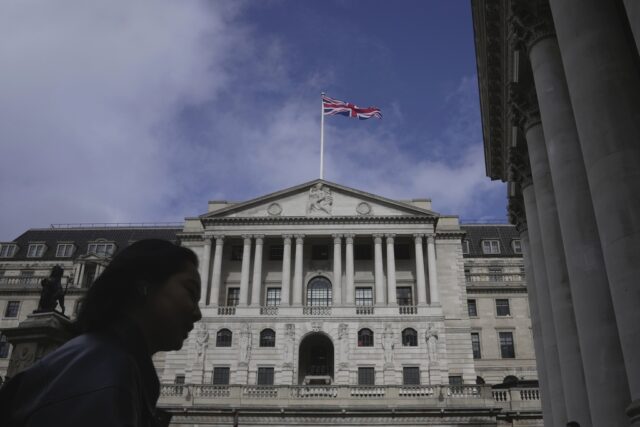The Bank of England kept its main interest rate unchanged at a 16-year high of 5.25% on Thursday even though inflation continues to drop from multi-decade peaks. The decision was widely anticipated in financial markets and comes a day after the US Federal Reserve also left its key interest rate unchanged. But unlike the Fed, the Bank of England gave few explicit indications that it was getting ready to cut borrowing costs soon. The Swiss National Bank went the other way Thursday, with a surprise cut to its main interest rate by a quarter of a percentage point.
Market expectations that lower interest rates were on the horizon got a boost Wednesday with news that UK inflation fell to a 2.5-year low of 3.4% in February—more than anticipated—and is now not far off the Bank of England’s target rate of 2%. The bank’s rate-setting Monetary Policy Committee acknowledged that inflation has been trending lower and could fall below the 2% target in the second quarter of the year. However, it said that “key indicators of inflation persistence remain elevated” and that interest rates will “need to remain restrictive for sufficiently long”—or at relatively high levels—to get inflation back to its goal.
Central banks around the world raised interest rates aggressively in late 2021 from near zero to counter price rises first stoked by supply chain issues during the coronavirus pandemic and then by Russia’s invasion of Ukraine, which pushed up food and energy costs. Higher interest rates—which cool the economy by making it more expensive to borrow, thereby bearing down on spending—have contributed to easing inflation worldwide, though they also have affected economic activity.
Britain’s governing Conservative Party hopes that lower inflation and the ensuing decline in interest rates may trigger a feel-good factor ahead of a general election that has to take place by January 2025. Opinion polls show the main opposition Labour Party way ahead and on track for a big victory over the Conservatives, who have been in power since 2010. Most speculation is that Prime Minister Rishi Sunak will call an election in the fall, when the economic backdrop is likely to be more benign than it is now.
Source: AP





